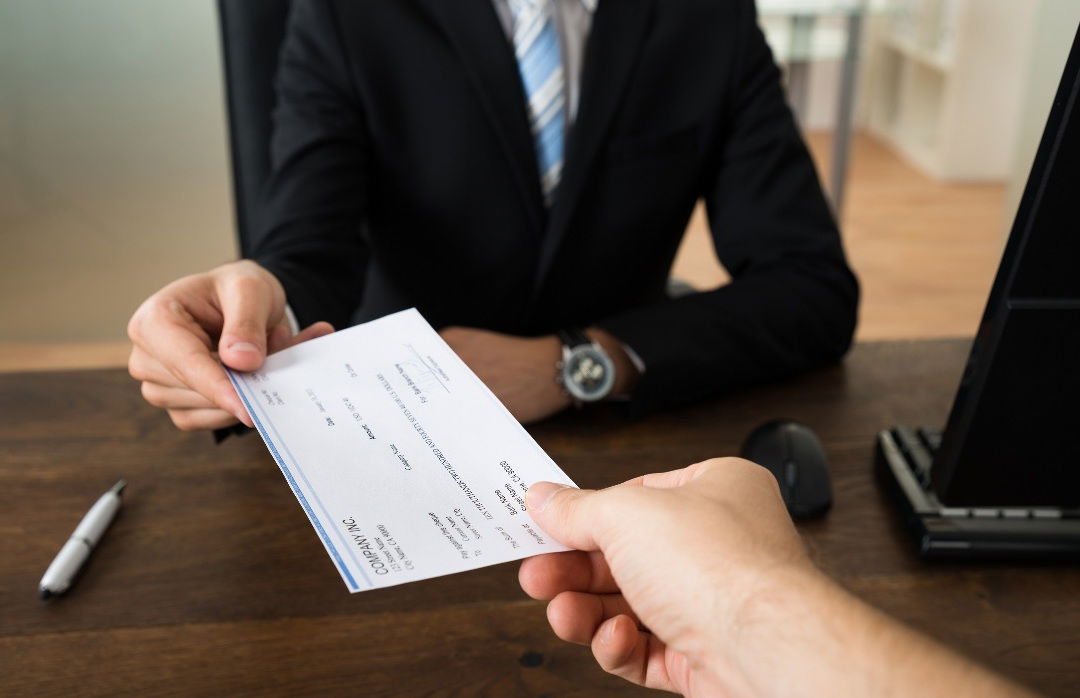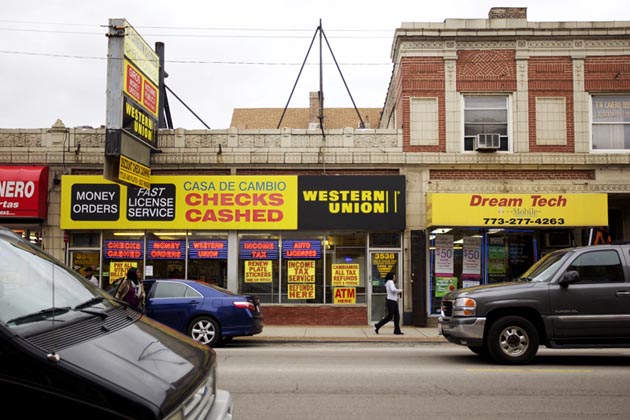Money orders are a secure way to send payments, whether you’re paying rent, covering a bill, or sending money without a bank account. They’re available at thousands of locations, but fees, limits, and accepted payment methods vary.

Some places charge under a dollar, while others allow larger amounts per transaction. Knowing where to go can help you save time and money.
15 Convenient Places to Buy a Money Order
Money orders are sold at grocery stores, convenience stores, banks, and post offices. Here are 16 places where you can get one in 2025.
| Location | Provider | Fee | Limit Per Money Order | Payment Methods |
|---|---|---|---|---|
| 7-Eleven | MoneyGram | Varies by location; typically around 1-3% of the total amount with a minimum fee of $0.65 | $500 | Cash |
| Rite Aid | Western Union | Varies by location | $500 | Cash |
| Walmart | MoneyGram | Maximum fee of $0.88 | $1,000 | Cash, Debit Card |
| CVS | MoneyGram | $0.99 to $1.25 | $500 | Cash |
| Meijer | Western Union | $0.65 | $500 | Cash |
| Publix | Western Union | $0.85 to $0.99 | $500 | Cash |
| Kroger | Western Union | $0.84 to $0.88 | $1,000 | Cash, Debit Card |
| Safeway | Western Union | Varies by location | $500 | Cash |
| Circle K | MoneyGram | $1.00 | $500 | Cash |
| Speedway | MoneyGram | $1.60 | $500 | Cash |
| QuikTrip | Western Union | $1.50 | $950 | Cash |
| USPS (Post Office) | Postal Money Order | $2.00 for amounts up to $500; $2.90 for amounts over $500 up to $1,000 | $1,000 (domestic); $700 (international) | Cash, Debit Card, Traveler’s Checks |
| Check Cashing Stores | Varies | Varies; often higher fees than retail stores | Varies | Cash |
| Banks | Varies | Typically around $5.00; may be higher than retail stores | Typically $1,000 or more | Cash, Debit Card |
| Credit Unions | Varies | Generally lower than banks; around $5.00 | Typically $1,000 or more | Cash, Debit Card |
Notes:
- Fees Vary by Location: The fees listed are typical ranges but can vary based on the specific store and region. It’s recommended to verify the exact fee at your chosen location.
- Payment Methods: Most locations accept cash for purchasing money orders. Some retailers, like Walmart and Kroger, also accept debit cards. Credit cards are generally not accepted for money order purchases.
- Availability: While many large retail chains offer money order services, availability can vary by specific store. It’s advisable to call ahead to confirm that the service is offered at your chosen location.
1. 7-Eleven
With more than 9,000 locations nationwide, 7-Eleven offers money orders through MoneyGram and Western Union. Fees typically range from 1% to 3% of the total amount, with a minimum charge of 65 cents. The maximum amount per money order is $500.
2. Rite Aid
Rite Aid has around 2,400 drugstores in 18 states and sells money orders through Western Union. Limits are capped at $500, and fees vary depending on the location.
3. Walmart
Walmart, with over 4,600 locations across the U.S., offers MoneyGram money orders at its customer service desks. The fee is no more than $1.00 per order, and you can purchase up to $1,000 at a time. Walmart also provides money order cashing services for an additional fee.
4. CVS
CVS has over 9,000 stores and issues money orders through MoneyGram. Costs range between 99 cents and $1.25, with a limit of $500 per transaction.
5. Meijer
Meijer, a Midwest-based grocery chain with more than 240 locations, sells Western Union money orders for 65 cents each. The maximum amount per order is $500.
6. Publix
Publix operates more than 1,300 stores across the Southeastern U.S. and provides Western Union money orders. Fees range between 85 and 99 cents, with a $500 transaction limit.
7. Kroger
Kroger and its affiliated grocery brands, such as Fred Meyer and King Soopers, offer Western Union money orders. Fees typically range from 84 to 88 cents, and limits vary by store, with some allowing purchases up to $1,000. Select locations also cash them.
8. Safeway
Safeway, a large supermarket chain, provides Western Union money orders. Fees and limits are not standardized across all locations, so it’s best to confirm details with the nearest store.
9. Circle K
With more than 7,200 convenience stores in the U.S., Circle K sells MoneyGram money orders. Fees generally start at $1.00, with a limit of $500 per transaction.
10. Speedway
Speedway, a major gas station and convenience store chain with nearly 4,000 locations, offers MoneyGram money orders for $1.60. The maximum amount per order is $500.
11. QuikTrip
QuikTrip, a regional convenience store chain with more than 900 locations, sells Western Union money orders. Fees are typically $1.50, and the maximum purchase amount is $950.
12. United States Postal Service (USPS)
The USPS provides Postal Money Orders, which are not issued by Western Union or MoneyGram. The cost is $2.10 for amounts up to $500 and $3.00 for amounts between $500 and $1,000. Domestic orders have a $1,000 limit, while international orders are capped at $700. Post offices also allow customers to cash money orders purchased from them.
13. Check Cashing Companies
Many check cashing businesses offer money orders, but pricing varies widely. Some charge higher fees than retail stores, while others impose unique transaction limits. It’s best to research different locations before purchasing.
14. Banks
Most banks issue money orders, often with fees around $5.00. Limits tend to be higher than at retail stores, usually exceeding $1,000. Some banks waive fees for account holders.
15. Credit Unions
Credit unions also offer money orders, often at a lower cost than banks, typically around $5.00. Limits vary, with many allowing purchases over $1,000. Some credit unions provide them free of charge to members with qualifying accounts.
Final Thoughts
Finding a place to buy a money order is easy, but choosing the best option depends on cost, limits, and convenience. Some locations charge under a dollar, while others allow higher amounts per transaction. Grocery stores, convenience stores, and major retailers often have the lowest fees, while banks and credit unions may offer more security.
If you need one, check with your preferred location to confirm pricing and payment options. A little research can help you avoid unnecessary fees and make the process hassle-free.
Frequently Asked Questions
How much do money orders cost?
Money order fees vary by store and business, but are usually a few dollars or less. You may pay anywhere from 69 cents to a maximum fee of $1.60 or more. Typically, you’ll find better deals at retail stores than you would at banks and other places.
Can you buy a money order with a credit card?
Purchasing a money order directly with a credit card is generally not possible, as most issuers require payment via cash or debit card. While some locations may accept credit cards, these instances are rare. Even if permitted, such transactions are typically processed as cash advances, which come with additional fees and higher interest rates.
How does a money order differ from a check?
You buy a money order upfront so that the recipient can convert the funds into cash immediately. A personal check requires the recipient to actually cash it. The money won’t be withdrawn from your checking account until they do.
What are the signs of fake money orders?
Unfortunately, fake money orders do exist. If you receive a money order and the dollar amount looks fuzzy or discolored, there’s a good chance it’s fake. Other signs of fake money orders are amounts over $1,000 and a lack of watermarks on the left side.
To report a fake money order or damaged money order, call the company that issued it, which may be one of the following: Western Union: 1-800-325-6000, Money Gram: 1-800-666-3947, or USPS Verification System: 1-866-459-7822.
Can you buy multiple money orders?
Yes, you can buy multiple money orders if you need to send a larger amount than the per-transaction limit allows. Many retailers and financial institutions cap individual money orders at $500 or $1,000, so purchasing more than one is common. However, some places may impose a daily limit on total purchases or require additional verification for larger amounts.
What are alternatives to money orders?
Sending money orders may not be suitable for everyone. Alternatives include opening a checking account at a bank or credit union, using prepaid cards, or utilizing digital payment apps like PayPal, Venmo, and Zelle. Alternatively, you can issue personal checks, cashier’s checks, or traveler’s checks.




